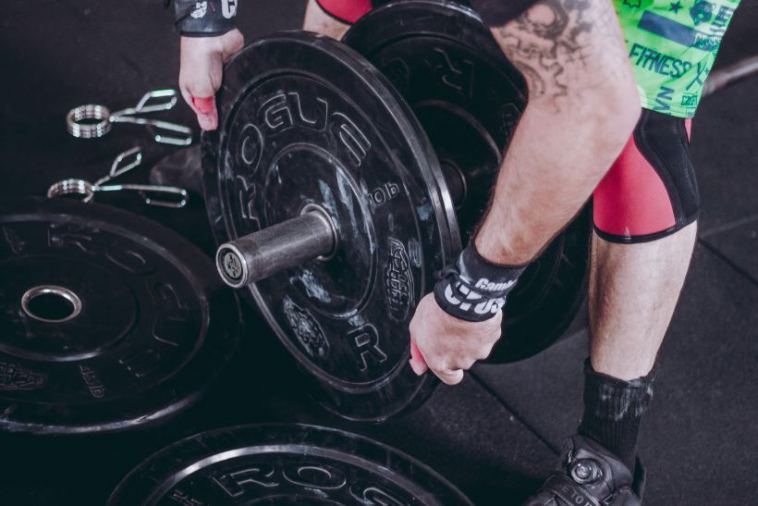- Like
- SHARE
- Digg
- Del
- Tumblr
- VKontakte
- Flattr
- Buffer
- Love This
- Save
- Odnoklassniki
- Meneame
- Blogger
- Amazon
- Yahoo Mail
- Gmail
- AOL
- Newsvine
- HackerNews
- Evernote
- MySpace
- Mail.ru
- Viadeo
- Line
- Comments
- Yummly
- SMS
- Viber
- Telegram
- JOIN
- Skype
- Facebook Messenger
- Kakao
- LiveJournal
- Yammer
- Edgar
- Fintel
- Mix
- Instapaper
- Copy Link
Introduction
Testosterone is the hormone associated with maleness, though women also have lesser amounts. It’s considered a “steroid” hormone that includes other compounds such as estrogens, progestins, and glucocorticoids.
These compounds each play a vital role in regulating our hormonal balance with testosterone accounting for things like muscle, voice deepening, and hair growth.
Working to optimize one’s testosterone levels can help support a myriad of favorable health outcomes such as muscle tone, sexual drive, and even keeping inflammation lower.
For those that live weights or workout, the benefits of testosterone are especially favored given the hormone’s role in building muscle.
Here are seven ways to boost testosterone…
Physical Exertion
Lifting weights or other rigorous exercises are known to raise testosterone levels naturally. Aside from the many benefits of daily exercise, research has shown that those who exercise regularly have higher levels of testosterone. Other research has shown that physical exercise among the obese is more effective at increasing testosterone than weight loss diets!
Testosterone Therapy
The surest way to boost your testosterone levels is to add supplementary sources directly. Testosterone therapy can be done with the oversight of a physician and comes in many forms. There are creams, intramuscular injections, and even IV-therapies available. These types of therapies aren’t free of possible side effects so one should always consult with a licensed health professional before considering this option. Natural means of optimizing testosterone are deemed a safer initial step by many.
Creatine Supplements
Creatine is a substance naturally found inside muscle cells. Chemically, it’s quite similar to many amino acids like leucine, isoleucine, and valine. It’s one of the most popular workout supplements—and for good reason! Creatine has been shown to help produce more energy, helps muscles recover faster, and helps build new muscle mass. In addition to these benefits, creatine has been shown to increase testosterone levels as well!
Vitamin D
Vitamin D is one of the most essential vitamins—technically a hormone—to the human body. Research continues to link this compound with favorable health outcomes such that it’s now considered a universal health aid. Specifically, researchers have found that daily supplementation with Vitamin D can help raise testosterone levels by as much as 25%. Exposure to sunlight, in healthy intervals, can also help the body synthesize more vitamin d without supplementation. Ways to further improve the process is to ensure adequate dietary intake of carbs and healthy fatty acids.
Avoiding Phytoestrogens
Many synthetic compounds mimic the role estrogen plays in the body. Classes of compounds like phthalates, bisphenols, and parabens have been shown to dramatically influence hormonal regulation. These compounds are so-called “forever compounds” meaning that they persist in our environment with no recourse for natural degradation. Unfortunately, they are also everywhere—products of plastics and other commercial industries. The disruptive potential of these compounds is so great that some experts warn global fertility rates could plummet to 0% (yes, as in no more babies) by the year 2045 without intervention.
Indole 3-Carbinol and Diindolylmethane Supplements (I3C + DIM)
I3C and DIM are dietary compounds found in foods like broccoli, cabbage, and other cruciferous vegetables. These compounds help recycle the body’s testosterone in ways that help optimize levels naturally. One way this is achieved is through the boosted production of “good” estrogen metabolites. These compounds help the body maintain higher levels of free testosterone (the more active form.) It is worth noting that I3C is inactive in the body until it is converted to DIM. Many supplements include both compounds for a longer, more-sustained result.
Quality Sleep
So many favorable health outcomes are related to getting quality, restorative sleep. Unfortunately, the stress of modern life, modern workplaces, and the barrage of daily input make it tough. Research has shown that in as little as one week, poor sleep quality can lower testosterone levels by as much as 15%. Taking action to ensure better sleep can not only help improve testosterone levels but also dramatically impact other aspects of one’s health. That means more energy to exercise (and boost testosterone) more energy to digest food (and optimize testosterone) and more energy to repair muscles. Try using natural sleep aids like melatonin and also be ready to take more involved activities like getting a better mattress if needed.
Final Thoughts
Testosterone is often associated (read as stereotyped) as the hormone in men responsible for loud, dangerous, and risky behavior. While possibly true to an extent—such perspectives are overly simplistic.
In fact, testosterone plays an integral role in regulating many systems in the body and has been shown vital to a myriad of favorable health outcomes in research.
The steps outlined here to boost testosterone are but a few. As with all health-related information one should always consult with a licensed healthcare professional before considering any dietary, nutritional, or lifestyle changes.
About Theresa Duncan
Originally from Detroit, MI, Theresa has been offering health and fitness advice for the last 30 years while working as an engineer. She decided to turn her passion into a profession, and finds nothing more satisfying than helping others reach their health and fitness goals.

